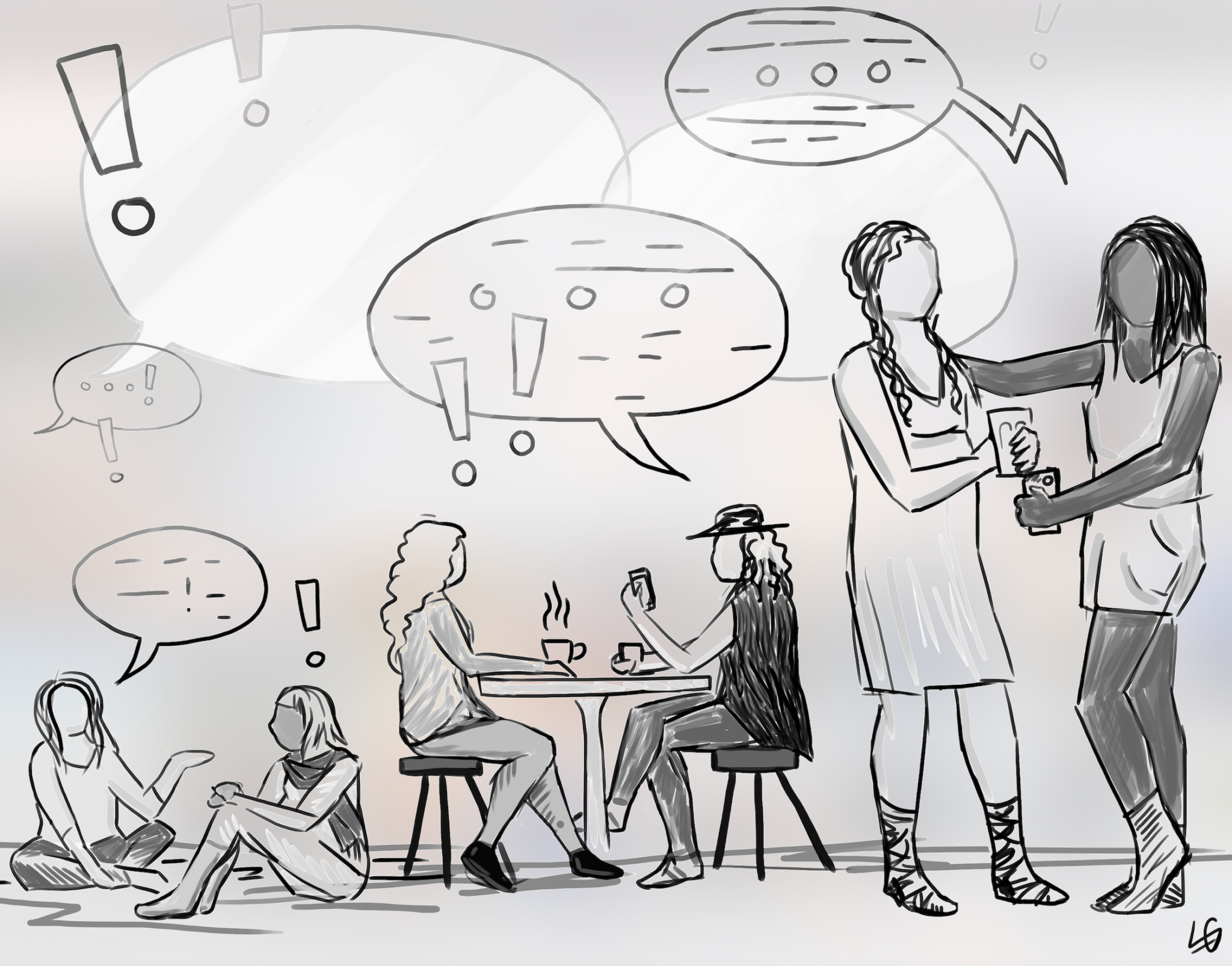
Many women across Hollywood, Washington, D.C. and beyond have recently come forward decrying the powerful and predatory men who are sexually abusive in their workplaces. Finally, the collective of accusations has led to firings and investigations, suspensions and apologies. Most cases concern heterosexual encounters, which will be my focus as well. Regardless, it’s important to remember that harassment and sexual misconduct occurs to people of all genders, by people of all genders.
This moment is revolutionary because it’s the first time that men have started to believe the women around them. And although the “#metoo” campaign is laudable, it is far from the first time that awareness about sexually unscrupulous men is public knowledge. Women have always come forward about the dangerous men around them — “I’ve heard some bad things” or “He assaulted my friend” — but our allegations were once only recognized by each other.
For whenever a case of sexual harassment or assault becomes public knowledge, women usually shake their heads. We all already knew that that guy was a creep anyway. That’s because we had heard about him through a whisper network, our way of warning each other about men whose behavior is somewhere between rowdy and rape-y. Many women are already familiar with the mutually protective nature of a whisper network — we just didn’t know that it had a name.
Whisper networks are a powerful, important part of any institution: The stronger the whisper network, the safer that institution will be. When survivors openly accuse their assailants — through due process, as they are doing now — the world gets safer for everyone. Yet coming forward about harassment is a complicated personal choice, one many survivors still do not make. Women will need whisper networks until a time when sexual misconduct is altogether publicly unacceptable, a moment still long coming.
There is an obvious distinction between a whisper network and petty gossip. With gossip, the social currency is the shock value, the “can you believe it”-ness of the story. Participation in a whisper network has no social clout and almost no intrigue. Protection is not a “Mean Girls’ Burn Book.” We’re not scrapbooking our assaults — we’re sharing them with each other to keep other women safe.
Incorrectly conflating the two would be an obvious way to intentionally misunderstand the significance of a whisper network. By purposefully blinding themselves to this distinction, perpetually terrified conservatives tout exaggerated concerns about false reporting: the myth of crazy women lying about assault to get back at the men that have scorned them. This type of straw-man consideration allows Fox News enthusiasts to sidestep the realities of sexual misconduct.
For if a woman were to lie about assault to defame a man, her reputation among women would be so damaged that she would likely be unable to recover her friendships. It would not only be insulting to all women that actually have been assaulted, it would also hurt the credibility of all future survivors who choose to tell their stories. Beyond unethical, it would be impractical — and it is so, so rare.
At Yale, there have been some stabs at informal ways of codifying the whisper network with “blacklists” at invite-only events. Although I am no great fan of sororities, a member of Kappa Alpha Theta told me that members can anonymously submit the name of a person they want to ban from an event and a reason for that decision. Yale’s orgies function similarly, where participants submit the names of people whom they do not want at events — either for a permanent blacklist or for a single event. It’s an imperfect system, but it is one that has helped some of my friends feel safer.
Yet anything more public than a private “blacklist” would destroy the social infrastructure that distinguishes a whisper network from petty gossip. There is just no ethical or logistically sound way to record a list of “Shitty Yale Men,” as women journalists tried — and failed — to do last week. The safety of a whisper network is that women stand by their stories, owning their speech as their own. Anonymous writing, especially on the internet, has very different ethical codes.
Still, I can think of quite a few guys of whom I would warn other women, men who have disrespected, violated or transgressed the boundaries of my friends. I see these men at parties, flirting with women not “in the know.” That’s the obvious shortcoming of the whisper network: It’s whispered. Yale has its own Roy Moore, Louis C.K. and Harvey Weinstein equivalents — powerful men whom many of us know to avoid. Yet many of us still do not. Until a time when more survivors speak publicly about their experiences, our whisper network is the best way we can try to protect each other — and ourselves. Perhaps one day at Yale, our whispers will crescendo into a collective call for reform.
Amelia Nierenberg is a senior in Timothy Dwight College. Her column typically runs on alternate Thursdays. Contact her at amelia.nierenberg@yale.edu .







